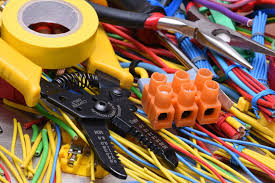Electrical Contractor – At A Glance
Depending on the state, electrical contractors may be employed by an electrical contractor’s company or they can operate their own business. They will be required to have a license. This license must be issued by the Licensing Board, which is a part of the state government. An electrical contractor must be a member of the National Electrical Contractors Association and the National Inspection Council for Electrical Installation Contracting. Visit electrician dayton oh at Andrew Casey Electrical Contractors
 Electrical contractors are often responsible for installing high-voltage power transmission lines, which transport electricity generated at power plants. They are also responsible for the design, construction, and maintenance of electrical systems. Electrical contractors often use a variety of tools and equipment to perform their work. They use industrial staple guns to attach large wires to walls, drills to drill holes, and electrical measuring tools to check connections. Electrical contractors may also use their organisational skills to monitor projects and keep schedules.
Electrical contractors are often responsible for installing high-voltage power transmission lines, which transport electricity generated at power plants. They are also responsible for the design, construction, and maintenance of electrical systems. Electrical contractors often use a variety of tools and equipment to perform their work. They use industrial staple guns to attach large wires to walls, drills to drill holes, and electrical measuring tools to check connections. Electrical contractors may also use their organisational skills to monitor projects and keep schedules.
Electrical contractors often have to work long hours to meet deadlines. They may also be called upon to respond to emergencies. Electrical contractors also have to ensure the safety of those who use the electrical system. They may be exposed to dangerous equipment or come into contact with live electrical parts. They may also suffer electrocution or severe burns. They are also prone to slips and falls. They can also suffer from musculoskeletal disorders.
Electrical contractors have the advantage of being able to work with a wide range of industries. They can also work from home. Electrical contractors work for many different companies, such as construction companies, power companies, and electric utilities. Electrical contractors can earn more in expensive cities and high-income areas. Despite this, they can also move to lower-cost areas if they wish to.
Although electrical contractors are responsible for the safety of those who use the electrical system, they are also at risk for injury. They may suffer from slips and falls, electrocution, and musculoskeletal disorders. They also need to ensure that the electrical system is working properly and that it meets building codes.
Electrical contractors also have to be careful about the quality of the materials that they use. They must use materials that are strong enough to withstand long production hours. They may have to buy extra insurance if there is a flood. Even if the electrical contractor does not own a building, their business assets could be damaged. It is always best to ask questions about materials and services. They may also need to schedule appointments to accommodate emergency situations.
When working on a new project, electrical contractors must install pathways for workers to enter and exit electrical rooms and telecom rooms. They must also ensure that access control doors are properly installed. Electrical contractors will also double-check wiring paths to ensure safety.
Electrical contractors are also at risk of slips and falls. They also face exposure if customers come into their office or showroom. They may also have to work in areas with high heat and humidity. They are also at risk for automobile-related incidents, data and networking applications, and electrocution.